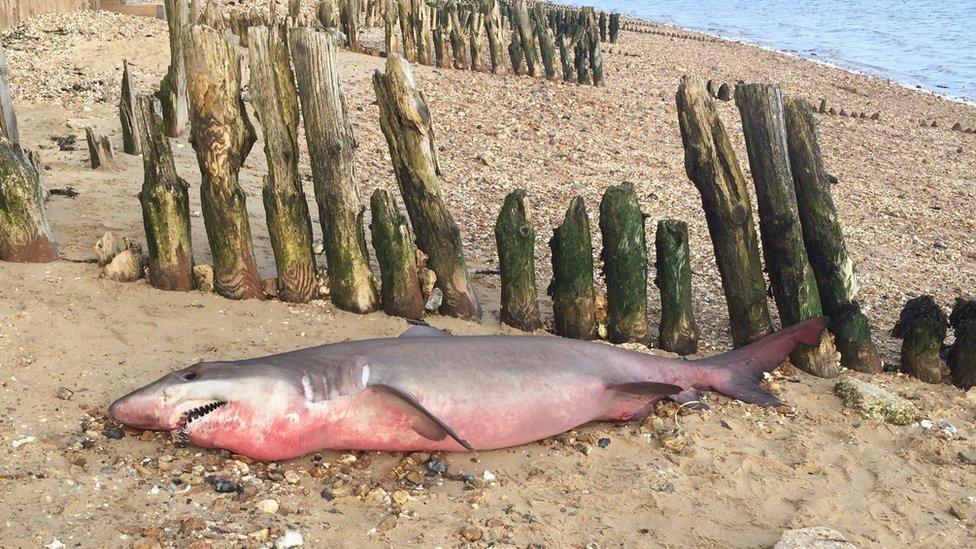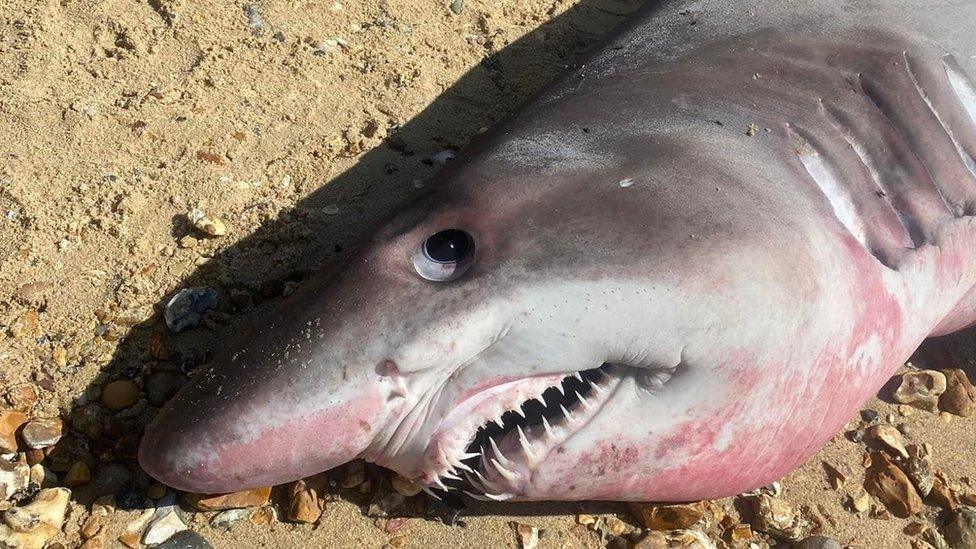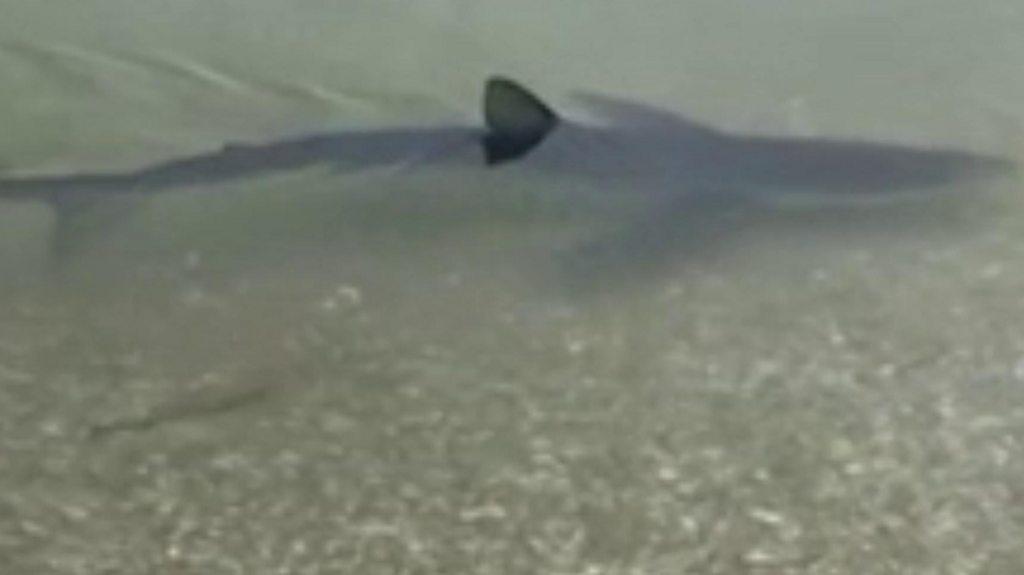Hampshire: Shark beheaded after washing up on beach
- Published

On Saturday, locals walking on Lepe beach in Hampshire discovered a dead shark
A shark thought to be rare in the UK has had its head and tail cut off after it was found dead on a beach.
On Saturday, locals walking on Lepe beach in Hampshire discovered a dead shark which was later spotted without its head, tail and fin.
Broadcaster and historian Dan Snow saw the shark and tweeted that a biologist he knew said it was an "exceptionally rare visitor to these shores".
He asked for the head to be returned so scientists could study it.
Allow X content?
This article contains content provided by X. We ask for your permission before anything is loaded, as they may be using cookies and other technologies. You may want to read X’s cookie policy, external and privacy policy, external before accepting. To view this content choose ‘accept and continue’.
Mr Snow tweeted a video at 01.00 GMT from a road near the beach where he and a group of local people had dragged the 8ft-long (2.4m) shark to try to safeguard it .
"We have recovered a good chunk of it but some trophy-hunters got there just before us and they took the head and the dorsal fin on the tail," he said.
This was "really disappointing", he added, since he and the group had been asked by scientists "to secure this carcass of this once-in-a-lifetime find in British waters".

Mr Snow said the potential presence of a smalltooth sandtiger shark was a "once-in-a-lifetime find" in the UK
Mr Snow put out a plea on Twitter for whoever had the head to bring it back temporarily so the scientists could examine it, adding that the individual could then keep the head.
He told the BBC that researchers were hoping to see the teeth and head as they believed the animal could be a smalltooth sandtiger shark, usually found in warmer waters.
He said it was a rare opportunity to have access to the shark and that scientists who contacted him wanted to study it to "help us learn about our oceans and the ocean health and climate change".

Broadcaster and historian Dan Snow said scientists wanted to have access to the head and teeth for research
Dr Ben Garrod, a professor in evolutionary biology at University of East Anglia, said it was important for scientists to see the shark as it offered a "snapshot" of animals living in international waters.
"The oceans cover 71 or 72% of our planet, however it's still incredibly mysterious," he told the BBC.
"Every time we see a whale breaching or a shark washing up, this is like finding a Roman hoard or Viking daggers."
He said this species was not typically seen on UK shores and studying it could offer insight into feeding patterns and water temperatures, depending on how healthy the shark was prior to death.
"These are active predators that are taking out fish; however, they are not dangerous to people in any way," he said.
"We should be celebrating that we're getting some incredible, iconic animals like this, including predators, rather than be fearful of them; it shows that potentially we've got a lot more out in our marine environment."
The Zoological Society of London will be collecting the remains of the shark on Tuesday to study it.

Follow BBC South on Facebook, external, Twitter, external, or Instagram, external. Send your story ideas to south.newsonline@bbc.co.uk, external.
Related topics
- Published17 August 2022

- Published3 August 2022
